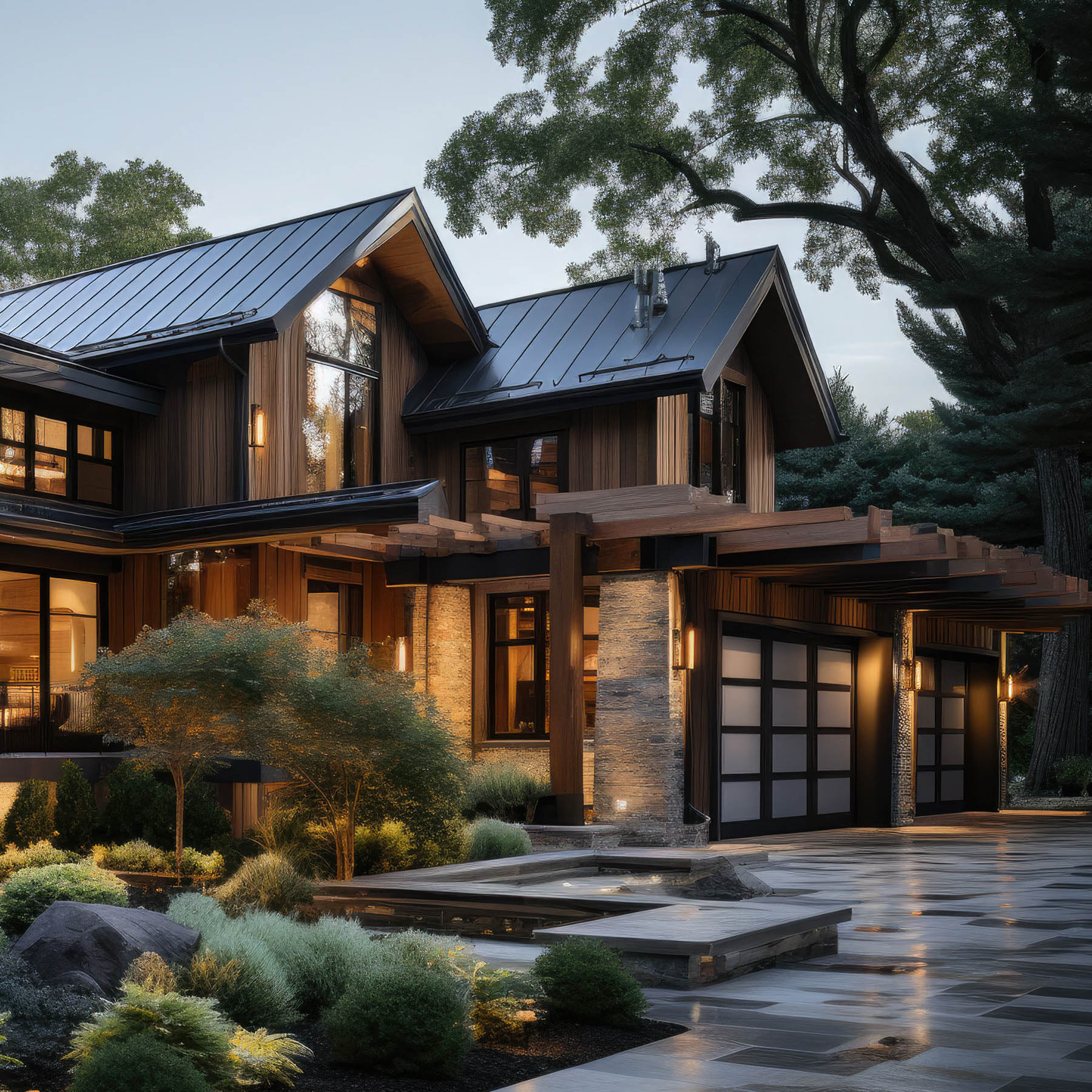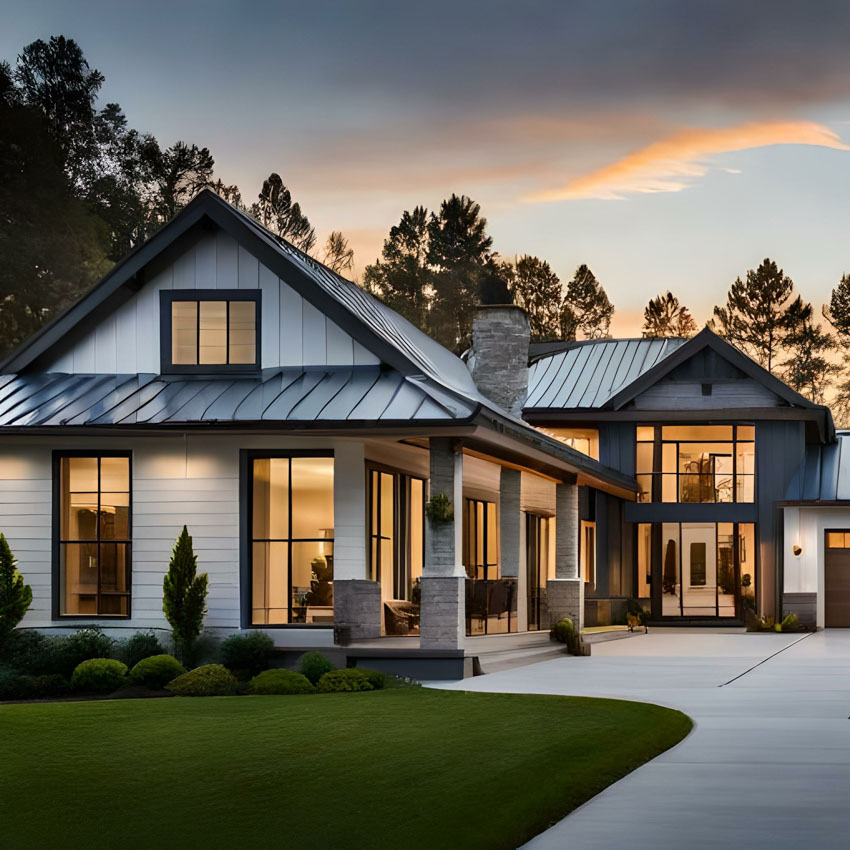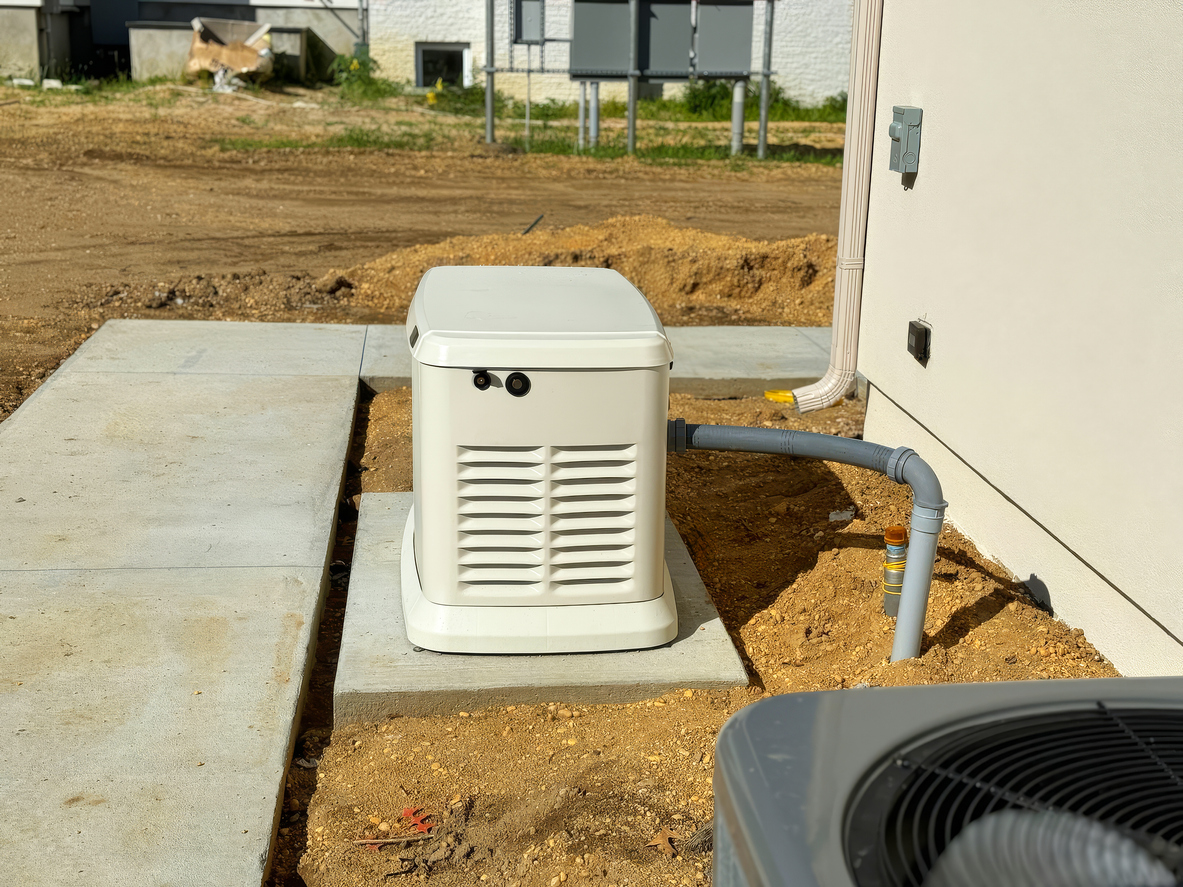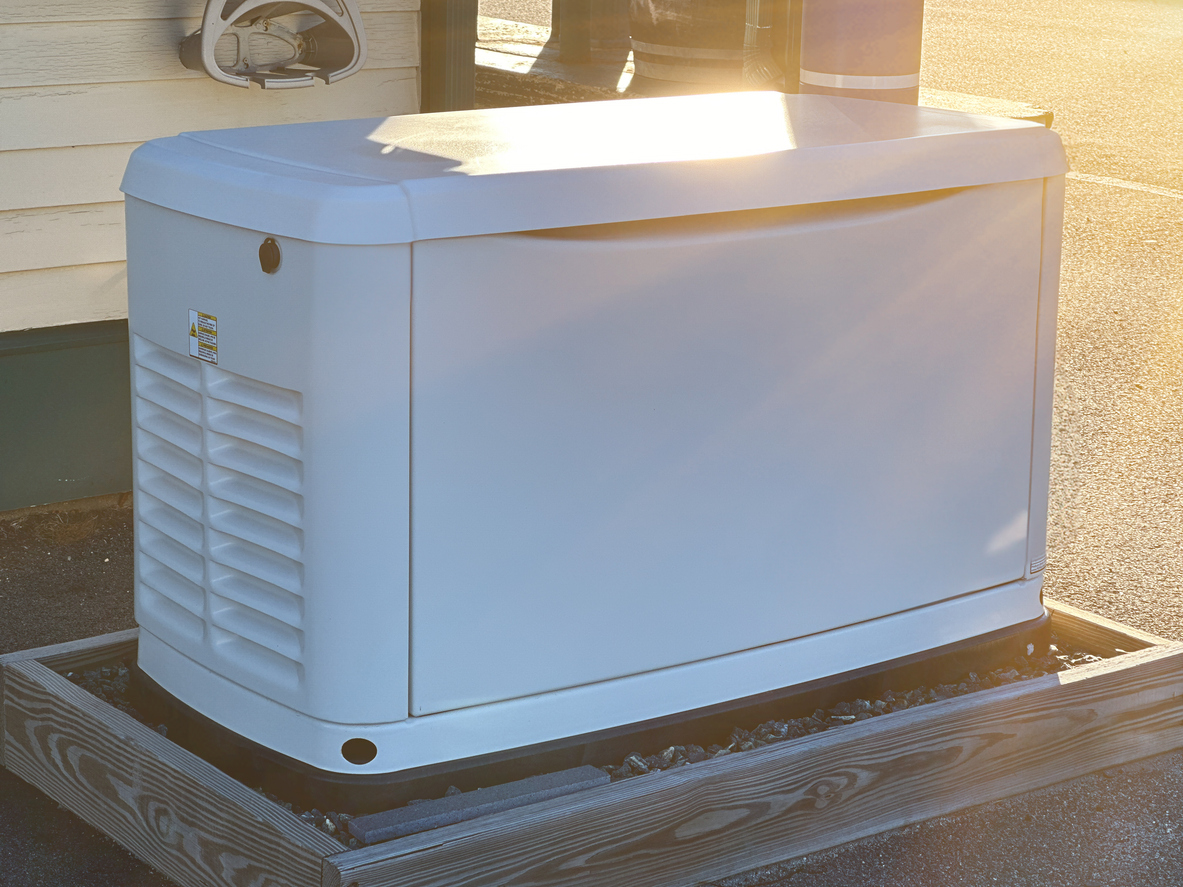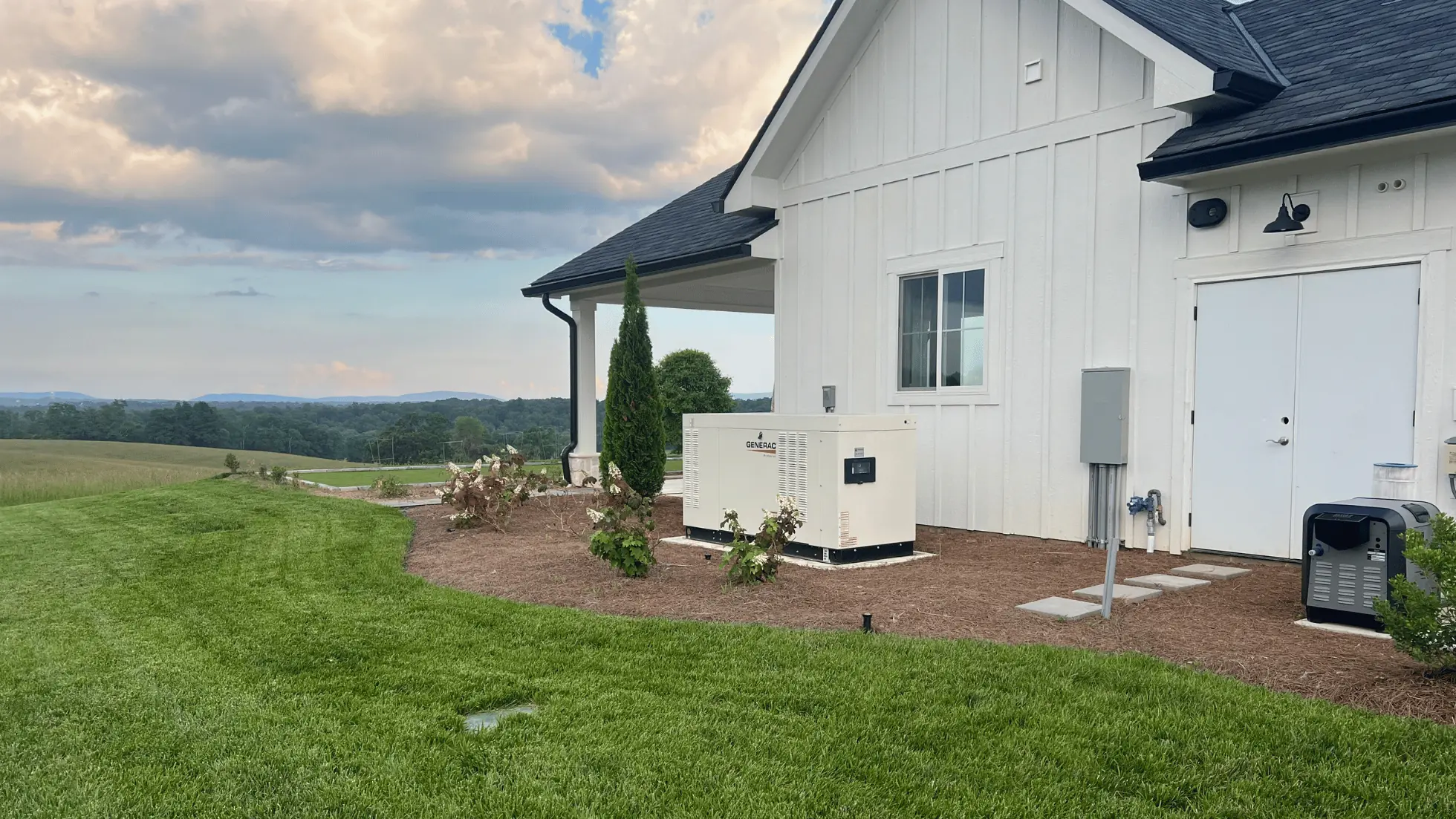Emergency Power Generators: Everything You Need To Know
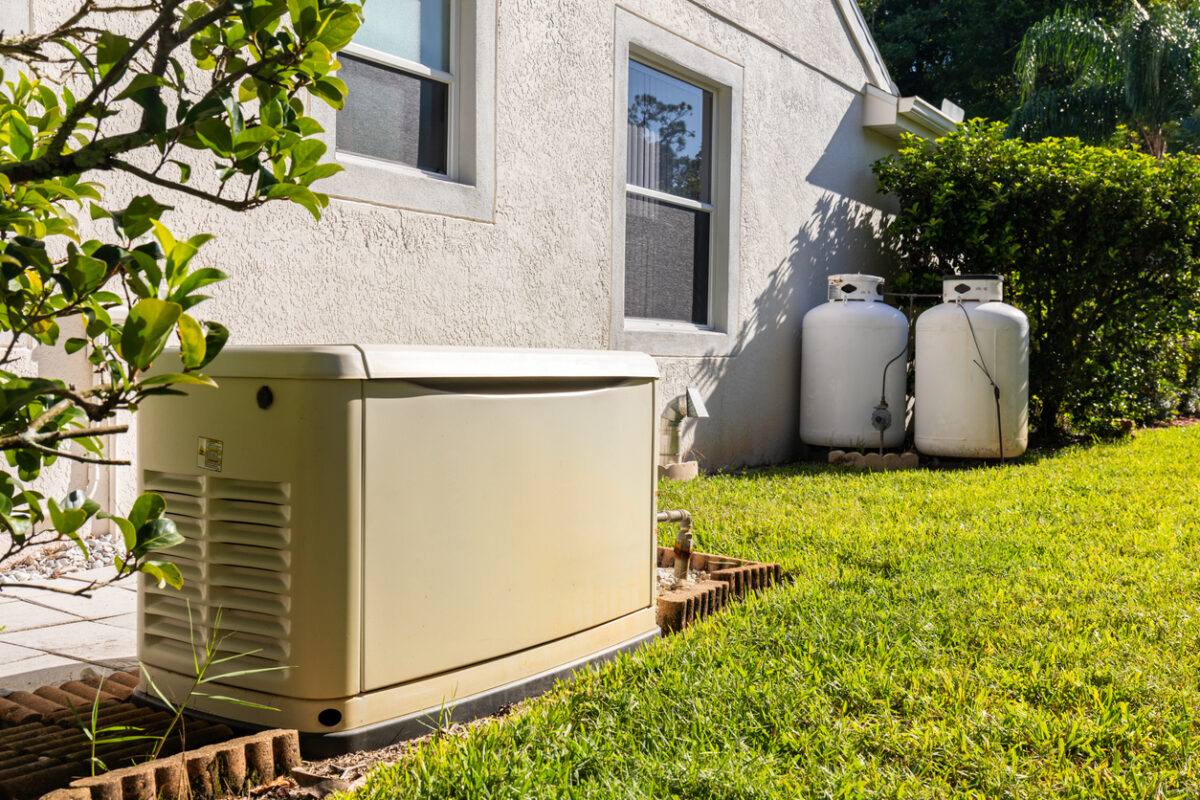
When the power goes out, especially during severe weather like winter storms or hurricanes, a standby generator steps in automatically to keep essential systems—like heating, cooling, and refrigeration—up and running. Permanently installed and fueled by natural gas or propane, these generators kick in within seconds of an outage, so you don’t need to do anything.
With a standby generator, your home is prepared and ready for emergencies. It’s a reliable, hands-off solution for keeping things comfortable and safe when the grid goes down.
What Size Generator Do I Need for Emergency Power?
Choosing the right size generator depends on what you need to power during an outage. Standby generators come in different capacities, measured in kilowatts (kW), and knowing your home’s essential needs helps you pick the right one.
- For Essential Circuits Only (Lights, Fridge, Small Appliances): A generator in the 7-12 kW range is generally enough for smaller homes or those only looking to power critical systems.
- For Larger Homes or Full Home Coverage: To keep more appliances and larger systems (like HVAC) running, you’ll need something between 15-26 kW. This range is usually enough to cover medium to large homes comfortably.
If you’re unsure about your specific power needs, check out our detailed guide on determining the right generator size for your home. It covers how to assess your home’s power requirements and choose a generator that meets your needs reliably.
What Is the Best Generator to Have for an Emergency?
For emergencies like winter storms or hurricanes, a standby generator is the best choice for dependable, automatic power. Unlike portable units, which need to be set up and refueled manually, a standby generator is installed permanently and starts on its own when the power goes out. Here’s what to look for to make sure you’re covered in all kinds of situations:
- Automatic Transfer Switch (ATS): An ATS detects power loss and switches your home to generator power immediately. This hands-off setup is crucial in severe weather, so you’re not scrambling to get things running.
- Fuel Source: Standby generators run on natural gas or propane, which means a steady fuel supply that doesn’t require constant refills like gasoline. This is a major advantage in long outages, especially during drawn-out weather events.
- Built to Handle the Weather: These units are designed to endure tough conditions—whether it’s snow, ice, or strong winds. Standby generators are built to perform, even when the weather’s working against you.
- A Solid Warranty: Reliability matters, and so does coverage. Generac offers a 7-year warranty on its standby generators, but with us, you’ll get an additional 3 years, extending your coverage to a full 10 years. That’s a decade of protection to keep your generator running smoothly.
- A Comprehensive Maintenance Plan: Regular upkeep is key to keeping your generator ready when you need it most. Our maintenance plan covers routine checks and servicing to make sure your system stays in top shape year-round, with no surprises when the power goes out.
Are Standby Generators Worth It for Emergency Power?
When it comes to handling power outages, especially in tough weather, a standby generator is a smart investment. Here’s why it’s worth the cost.
First off, a standby generator keeps essential systems—heating, cooling, refrigerators—running automatically within seconds of an outage. In emergencies like winter storms or hurricanes, this means comfort, safety, and peace of mind without any scrambling. You’re covered from things like spoiled food, frozen pipes, and other issues that can get costly fast.
If you live in an area with frequent outages, a standby generator really proves its worth. While it costs more upfront than a portable model, it’s far more reliable during extended emergency situations.
Bottom line: a standby generator is worth it for anyone who wants reliable, automatic power, a safer home, and an investment that pays off over time.
How Do I Power My House with a Standby Generator for Emergency Situations?
Powering your house with a standby generator is the easiest and most reliable way to stay prepared for emergencies like winter storms, hurricanes, or prolonged outages. Here’s how it works.
Standby generators connect directly to your home’s electrical panel through an Automatic Transfer Switch (ATS). When the main power fails, the ATS disconnects your house from the grid and instantly switches to generator power. Within seconds, your essential systems—or the whole house, if your generator is sized for it—are up and running.
This automatic setup is crucial during emergencies. You’re not left scrambling to set up a portable unit, fuel it, or run extension cords. With a standby generator, you have steady, dependable power without lifting a finger, no matter how rough the weather gets.
To ensure safe and reliable operation, professional installation is a must. A licensed technician will install both the generator and the ATS, making sure your system meets code and is ready to handle any emergency. Once installed, your standby generator is set to keep your home powered through any crisis, making it the ultimate solution for emergency power.
Standby Generator Costs and Investment Considerations
Investing in a standby generator isn’t just about the upfront cost—it’s about protecting your home and adding real value over the long run. Here’s what to keep in mind.
Upfront Costs
Standby generator costs can vary depending on the size and power you need. Larger units that power the whole house will be at the higher end, while smaller models that just handle essential circuits can be more budget-friendly. It’s about finding the right fit for your home and what you want covered in an outage.
Long-Term Value
While the initial cost might be higher, a standby generator pays off by keeping you covered when it matters most. It protects you from costly surprises during a long outage. Plus, it’s a strong selling point if you ever decide to move—buyers recognize the value of a home that’s prepared for power outages, especially in areas with frequent storms.
Financing and Incentives
At Premier Generators, we make financing easy. This allows you to spread out the cost of your generator and choose a plan that best fits your budget. For more details, visit our financing page!
In short, a standby generator is more than a one-time purchase—it’s a long-term investment in your home’s safety, comfort, and readiness for any emergency.
